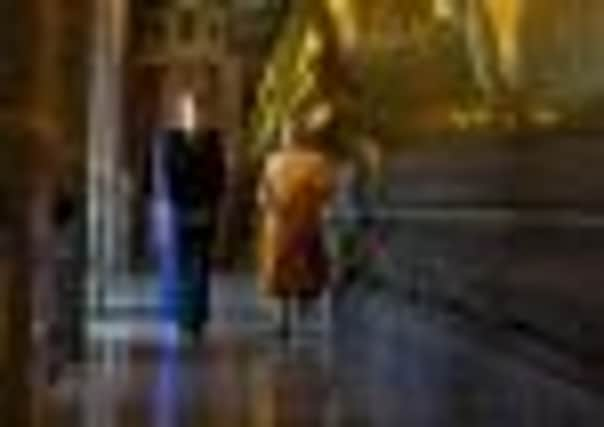Obama deepens Asian alliances on packed tour


While in Asia, however, Mr Obama will be dividing his attention by monitoring the escalating conflict between Israel and the Hamas-ruled Gaza Strip. Mr Obama has been in regular contact with Israeli prime minister Benjamin Netanyahu as well as with Egyptian and Turkish leaders who might hold sway with the Hamas leadership.
Mr Obama landed in Bangkok yesterday afternoon, his schedule packed with cultural sightseeing, a royal audience with King Bhumibol Adulyadej, a private meeting with prime minister Yingluck Shinawatra, a joint press conference and an official dinner.
Advertisement
Hide AdAdvertisement
Hide AdHe will also visit Burma and Cambodia in his first trip abroad since winning a second term.
The visit to Thailand, less than 18 hours long, is a gesture of friendship to a long-standing partner and major non-Nato ally.
But the two countries have faced strains, most recently after the 2006 military coup that deposed prime minister Thaksin Shinawatra, and Mr Obama’s visit offers an opportunity to restate and broaden the relationship.
“It was very important for us to send a signal to the region that allies are going to continue to be the foundation of our approach” to establishing a more prominent presence in Asia, deputy national security adviser Ben Rhodes told reporters travelling with the President aboard Air Force One.
Advertisement
Hide AdAdvertisement
Hide AdMr Obama is also seeking to open new markets for US businesses; the United States is Thailand’s third biggest trading partner, behind China and Japan. Becoming a counterweight to China in the region is a keystone of Mr Obama’s so-called pivot to the Asia-Pacific region.
Mr Obama’s trip comes on the heels of meetings in Thailand between US Secretary of Defence Leon Panetta and his Thai counterparts on security and military co-operation on issues ranging from fighting weapons proliferation to disaster relief to countering piracy.
Alluding to the 2006 coup, Mr Obama’s national security adviser, Tom Donilon, said in a speech ahead of the trip last week that Mr Obama would build on Mr Panetta’s outreach to reinforce the relationship and “support the continued peaceful restoration of democratic order after a turbulent period”.
Leaving behind chants of “Obama, Obama” by adoring crowds on the streets, the President stepped into the serenity of Thailand’s most famous temple compound to marvel at its centrepiece – a gigantic, golden statue of a reclining Buddha propped up on one elbow before passing into nirvana.
Advertisement
Hide AdAdvertisement
Hide AdThe Temple of Reclining Buddha, formally known as Wat Pho, was the first stop on Mr Obama’s Asian tour. He arrived at the temple, one of Bangkok’s most famous tourist sites, straight from the airport.
Mr Obama then paid a courtesy call to ailing 86-year-old US-born King Bhumibol Adulyadej in his hospital quarters. The king, the longest serving living monarch, was born in Cambridge, Massachusetts, and studied in Europe.
The centrepiece of the Asia trip comes on Monday when Mr Obama travels to Burma, the once reclusive and autocratic state that has begun instituting democratic measures. Mr Obama has eased sanctions on the country and his visit will be the first there by a sitting US president.
Obama aides see Burma as not only a success story but also as a signal to other countries that the US will reward democratic behaviour.
Advertisement
Hide AdAdvertisement
Hide Ad“If Burma can continue to succeed in a democratic transition, then that can potentially send a powerful message regionally and around the world ... that if countries do take the right decisions, we have to be there with incentives,” Mr Rhodes said.